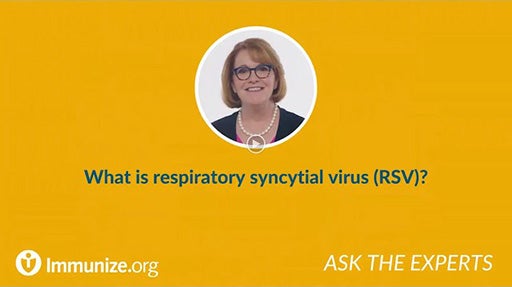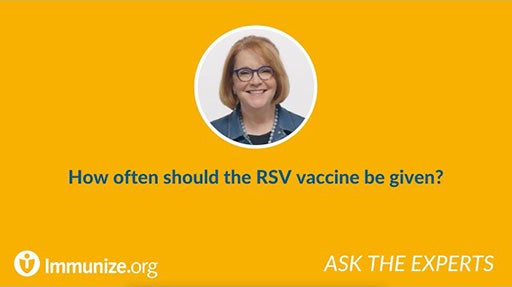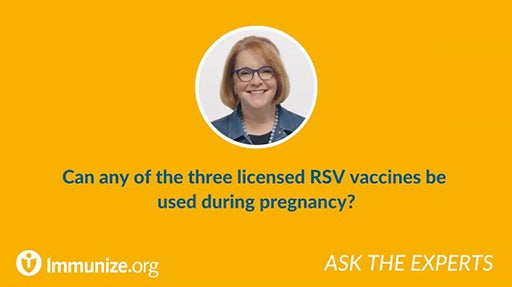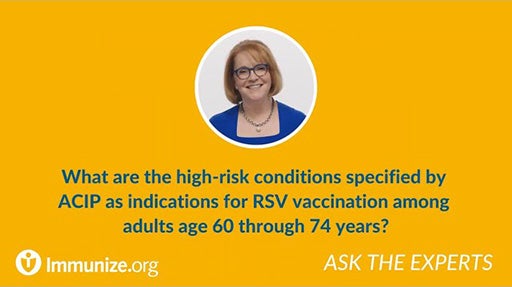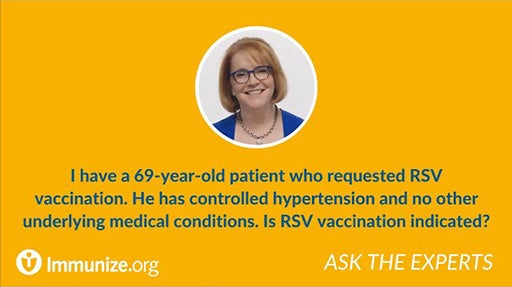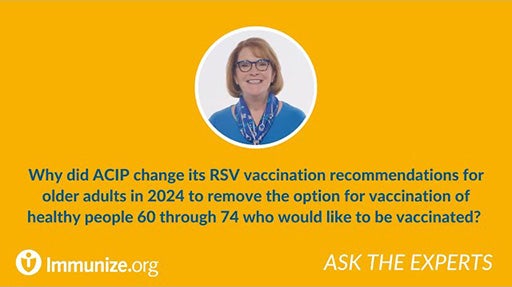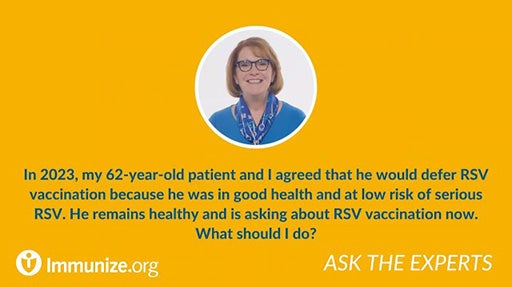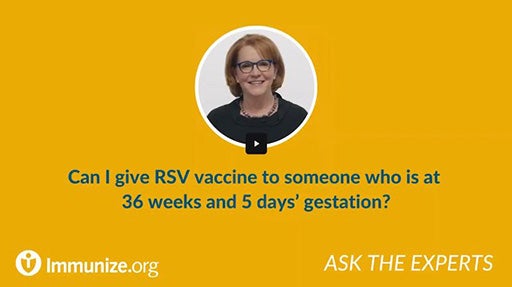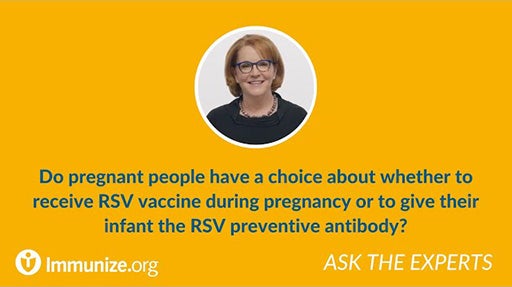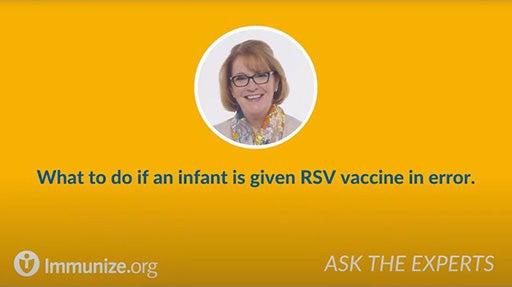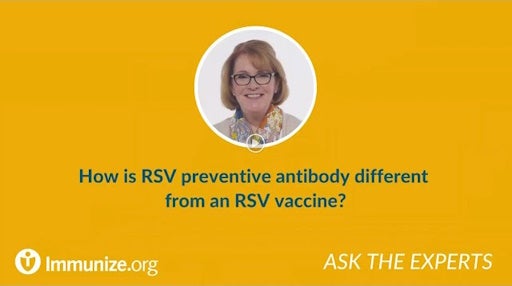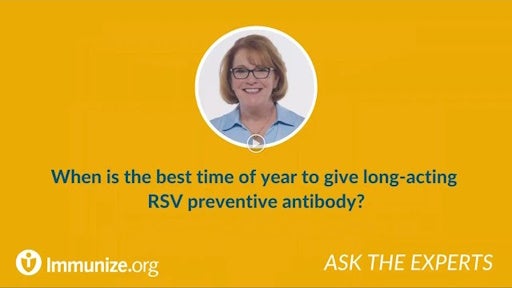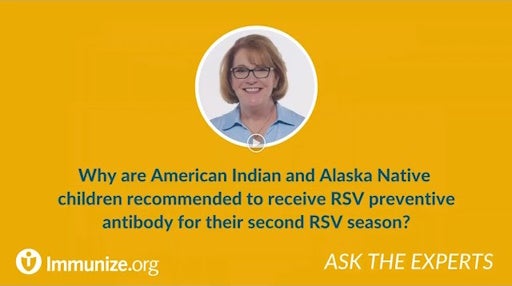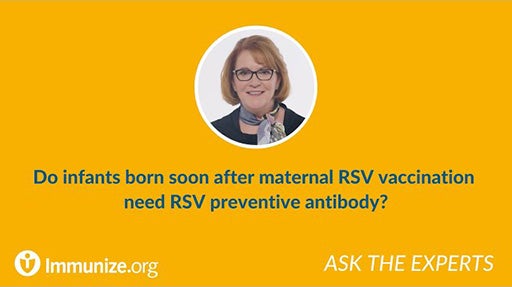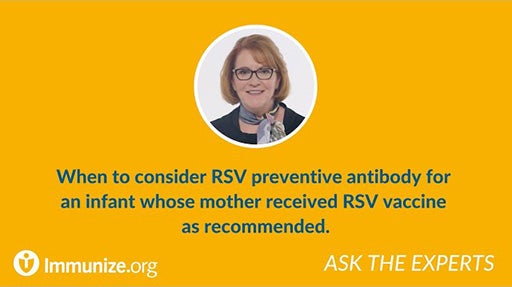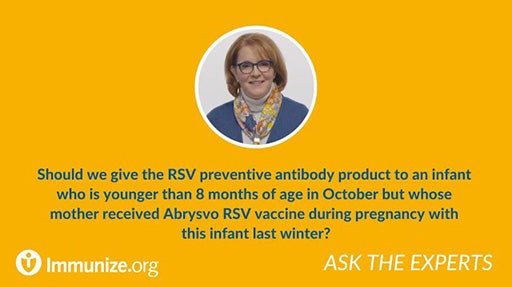All three RSV vaccines were effective in preventing RSV-associated lower respiratory tract disease (LRTD) in clinical trial participants, over the course of two RSV seasons.
The global clinical trials for RSVPreF3 (Arexvy, GSK) vaccine involved nearly 25,000 participants and some participants were followed for 2 RSV seasons. One dose reduced the risk of laboratory-confirmed RSV-associated LRTD with two or more symptoms by 82.6% during the first RSV season and 56.1% during the second season. In studies of the real-world effectiveness of Arexvy during the 2023–2024 RSV season, the first since licensure of Arexvy, Arexvy was approximately 77% effective in preventing RSV-associated emergency department encounters and 83% effective in preventing RSV-associated hospitalizations in adults 60 and older.
The RSVpreF (Abrysvo, Pfizer) vaccine global clinical trials involved nearly 37,000 participants, and some participants were followed for 2 RSV seasons. One dose reduced the risk of symptomatic, laboratory-confirmed RSV-associated LRTD with 3 or more symptoms by 88.9% during the first RSV season and 78.6% during a partial second season. In studies of the real-world effectiveness of Abrysvo during the 2023–2024 RSV season, the first RSV season since licensure, Abrysvo was approximately 79% effective in preventing RSV-associated emergency department encounters and 73% effective in preventing RSV-associated hospitalizations in adults 60 and older.
The mRNA RSV (mResvia, Moderna) vaccine global clinical trials involved nearly 37,000 participants. One dose reduced the risk of symptomatic laboratory-confirmed RSV LRTD with three or more symptoms by 80.9% in the first season. After a median follow up time of 18.8 months, its efficacy declined to 48.4%. Because mResvia was licensed so recently, real-world vaccine effectiveness against RSV-associated hospitalization and other severe illness cannot yet be estimated.
Few people enrolled in the clinical trials were either frail or of advanced age (80 or older), and none lived in long-term care facilities. People with immunocompromising conditions were excluded from clinical trials. For this reason, the clinical trials did not measure how well the vaccines would work in the people at highest risk of serious RSV disease. However, CDC notes that real-world data for Arexvy and Abrysvo during the 2023–2024 RSV season demonstrated effectiveness in these groups.
